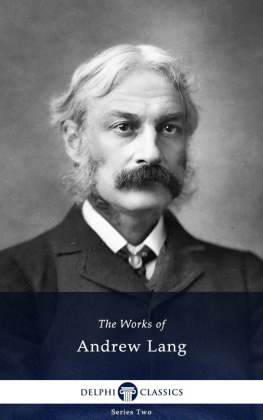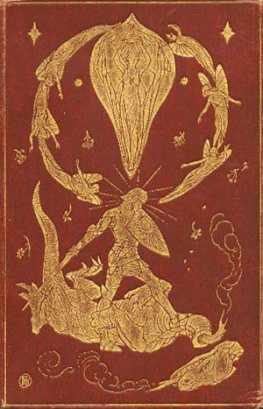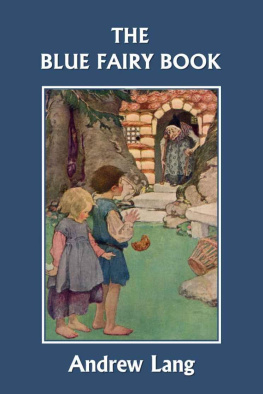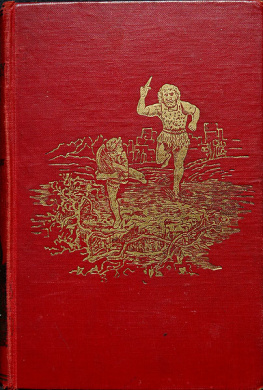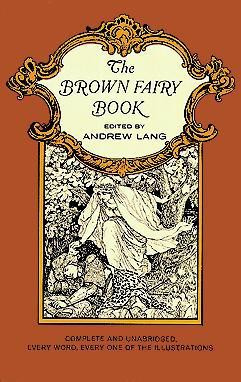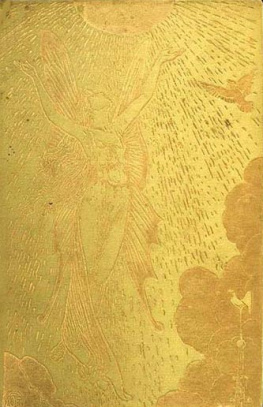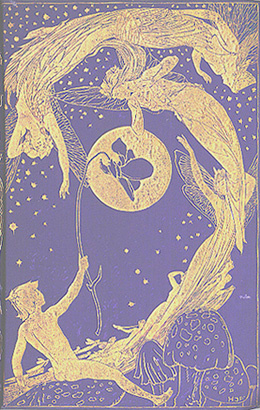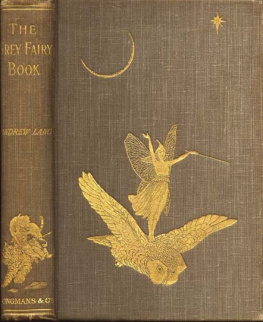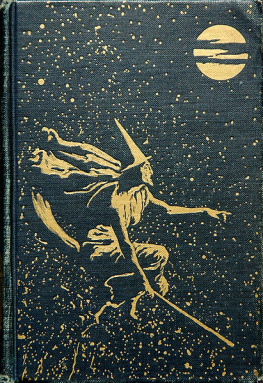Andrew Lang - Prince Prigio. From "His Own Fairy Book"
Here you can read online Andrew Lang - Prince Prigio. From "His Own Fairy Book" full text of the book (entire story) in english for free. Download pdf and epub, get meaning, cover and reviews about this ebook. genre: Children. Description of the work, (preface) as well as reviews are available. Best literature library LitArk.com created for fans of good reading and offers a wide selection of genres:
Romance novel
Science fiction
Adventure
Detective
Science
History
Home and family
Prose
Art
Politics
Computer
Non-fiction
Religion
Business
Children
Humor
Choose a favorite category and find really read worthwhile books. Enjoy immersion in the world of imagination, feel the emotions of the characters or learn something new for yourself, make an fascinating discovery.

- Book:Prince Prigio. From "His Own Fairy Book"
- Author:
- Genre:
- Rating:3 / 5
- Favourites:Add to favourites
- Your mark:
- 60
- 1
- 2
- 3
- 4
- 5
Prince Prigio. From "His Own Fairy Book": summary, description and annotation
We offer to read an annotation, description, summary or preface (depends on what the author of the book "Prince Prigio. From "His Own Fairy Book"" wrote himself). If you haven't found the necessary information about the book — write in the comments, we will try to find it.
Prince Prigio. From "His Own Fairy Book" — read online for free the complete book (whole text) full work
Below is the text of the book, divided by pages. System saving the place of the last page read, allows you to conveniently read the book "Prince Prigio. From "His Own Fairy Book"" online for free, without having to search again every time where you left off. Put a bookmark, and you can go to the page where you finished reading at any time.
Font size:
Interval:
Bookmark:
Prince Prigio
From "His Own Fairy Book"
By Andrew Lang
PRINCE PRIGIO
is
Dedicated
to
ALMA
THYRA
EDITH
ROSALIND
NORNA
CECILY
AND VIOLET

PREFACE
In compiling the following History from the Archives of Pantouflia, the Editor has incurred several obligations to the Learned. The Return of Benson (chapter xii.) is the fruit of the research of the late Mr. Allen Quatermain, while the final wish of Prince Prigio was suggested by the invention or erudition of a Lady.
A study of the Firedrake in South Africa where he is called the Nanaboull, a difficult word has been published in French (translated from the Basuto language) by M. Paul Sbillot, in the Revue des Traditione Populaires. For the Remora, the Editor is indebted to the Voyage la Lune of M. Cyrano de Bergrac.
CHAPTER I
How the Fairies were not Invited to Court

Once upon a time there reigned in Pantouflia a king and a queen. With almost everything else to make them happy, they wanted one thing: they had no children. This vexed the king even more than the queen, who was very clever and learned, and who had hated dolls when she was a child. However, she, too in spite of all the books she read and all the pictures she painted, would have been glad enough to be the mother of a little prince. The king was anxious to consult the fairies, but the queen would not hear of such a thing. She did not believe in fairies: she said that they had never existed; and that she maintained, though The History of the Royal Family was full of chapters about nothing else.
Well, at long and at last they had a little boy, who was generally regarded as the finest baby that had ever been seen. Even her majesty herself remarked that, though she could never believe all the courtiers told her, yet he certainly was a fine child a very fine child.
Now, the time drew near for the christening party, and the king and queen were sitting at breakfast in their summer parlour talking over it. It was a splendid room, hung with portraits of the royal ancestors. There was Cinderella, the grandmother of the reigning monarch, with her little foot in her glass slipper thrust out before her. There was the Marquis de Carabas, who, as everyone knows, was raised to the throne as prince consort after his marriage with the daughter of the king of the period. On the arm of the throne was seated his celebrated cat, wearing boots. There, too, was a portrait of a beautiful lady, sound asleep: this was Madame La Belle au Bois-dormant, also an ancestress of the royal family. Many other pictures of celebrated persons were hanging on the walls.
You have asked all the right people, my dear? said the king.
Everyone who should be asked, answered the queen.
People are so touchy on these occasions, said his majesty. You have not forgotten any of our aunts?
No; the old cats! replied the queen; for the kings aunts were old-fashioned, and did not approve of her, and she knew it.
They are very kind old ladies in their way, said the king; and were nice to me when I was a boy.
Then he waited a little, and remarked:
The fairies, of course, you have invited? It has always been usual, in our family, on an occasion like this; and I think we have neglected them a little of late.
How can you be so absurd? cried the queen. How often must I tell you that there are no fairies? And even if there were but, no matter; pray let us drop the subject.
They are very old friends of our family, my dear, thats all, said the king timidly. Often and often they have been godmothers to us. One, in particular, was most kind and most serviceable to Cinderella I., my own grandmother.
Your grandmother! interrupted her majesty. Fiddle-de-dee! If anyone puts such nonsense into the head of my little Prigio
But here the baby was brought in by the nurse, and the queen almost devoured it with kisses. And so the fairies were not invited! It was an extraordinary thing, but none of the nobles could come to the christening party when they learned that the fairies had not been asked. Some were abroad; several were ill; a few were in prison among the Saracens; others were captives in the dens of ogres. The end of it was that the king and queen had to sit down alone, one at each end of a very long table, arrayed with plates and glasses for a hundred guests for a hundred guests who never came!
Any soup, my dear? shouted the king, through a speaking-trumpet; when, suddenly, the air was filled with a sound like the rustling of the wings of birds.
Flitter, flitter, flutter, went the noise; and when the queen looked up, lo and behold! on every seat was a lovely fairy, dressed in green, each with a most interesting-looking parcel in her hand. Dont you like opening parcels? The king did, and he was most friendly and polite to the fairies. But the queen, though she saw them distinctly, took no notice of them. You see, she did not believe in fairies, nor in her own eyes, when she saw them. So she talked across the fairies to the king, just as if they had not been there; but the king behaved as politely as if they were real which, of course, they were.
When dinner was over, and when the nurse had brought in the baby, all the fairies gave him the most magnificent presents. One offered a purse which could never be empty; and one a pair of seven-leagued boots; and another a cap of darkness, that nobody might see the prince when he put it on; and another a wishing-cap; and another a carpet, on which, when he sat, he was carried wherever he wished to find himself. Another made him beautiful for ever; and another, brave; and another, lucky: but the last fairy of all, a cross old thing, crept up and said, My child, you shall be too clever!
This fairys gift would have pleased the queen, if she had believed in it, more than anything else, because she was so clever herself. But she took no notice at all; and the fairies went each to her own country, and none of them stayed there at the palace, where nobody believed in them, except the king, a little. But the queen tossed all their nice boots and caps, carpets, purses, swords, and all, away into a dark lumber-room; for, of course, she thought that they were all nonsense, and merely old rubbish out of books, or pantomime properties.
CHAPTER II
Prince Prigio and his Family

Well, the little prince grew up. I think Ive told you that his name was Prigio did I not? Well, that was his name. You cannot think how clever he was. He argued with his nurse as soon as he could speak, which was very soon. He argued that he did not like to be washed, because the soap got into his eyes. However, when he was told all about the pores of the skin, and how they could not be healthy if he was not washed, he at once ceased to resist, for he was very reasonable. He argued with his father that he did not see why there should be kings who were rich, while beggars were poor; and why the king who was a little greedy should have poached eggs and plum-cake at afternoon tea, while many other persons went without dinner. The king was so surprised and hurt at these remarks that he boxed the princes ears, saying, Ill teach you to be too clever, my lad. Then he remembered the awful curse of the oldest fairy, and was sorry for the rudeness of the queen. And when the prince, after having his ears boxed, said that force was no argument, the king went away in a rage.
Font size:
Interval:
Bookmark:
Similar books «Prince Prigio. From "His Own Fairy Book"»
Look at similar books to Prince Prigio. From "His Own Fairy Book". We have selected literature similar in name and meaning in the hope of providing readers with more options to find new, interesting, not yet read works.
Discussion, reviews of the book Prince Prigio. From "His Own Fairy Book" and just readers' own opinions. Leave your comments, write what you think about the work, its meaning or the main characters. Specify what exactly you liked and what you didn't like, and why you think so.

